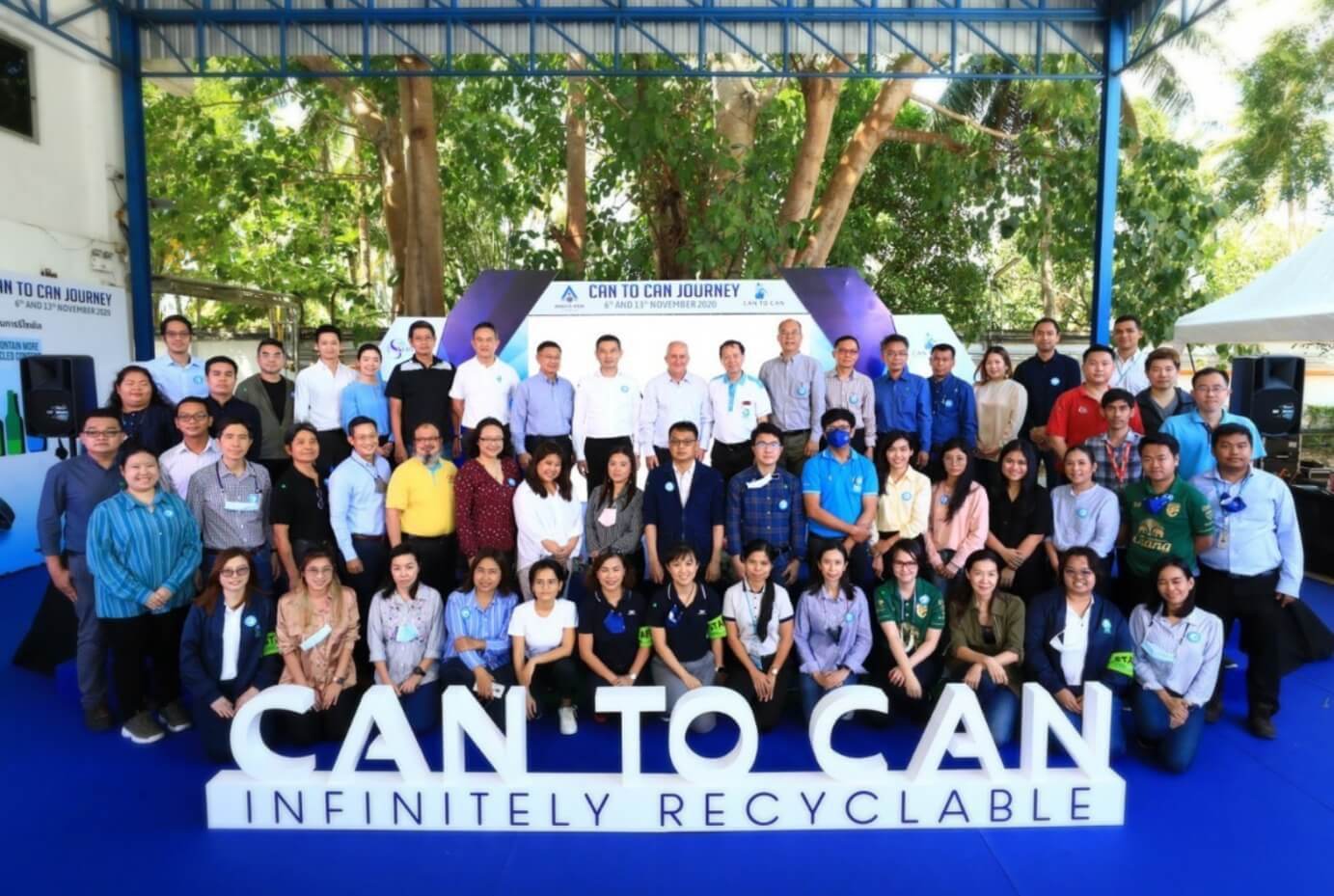
Joining Forces with Recycling Partners for Aluminium Cans
Aligning aluminium cans waste management with the circular economy principles by revitalizing aluminium cans through innovation.
Have you thought about where trash goes after we consume and dispose of it?
Trash… things we no longer need or want for consumption. Even though you may not want them anymore, some of this waste can be recycled and used again.
Aluminium Loop wants to invite you to learn about recyclable waste and the current prices for different types of recyclable materials. Generally, recyclable waste is categorized into 5 main types:
*Data as of May 2, 2021: http://www.wongpanit.com/print_history_price/1138
** Prices may vary by store.
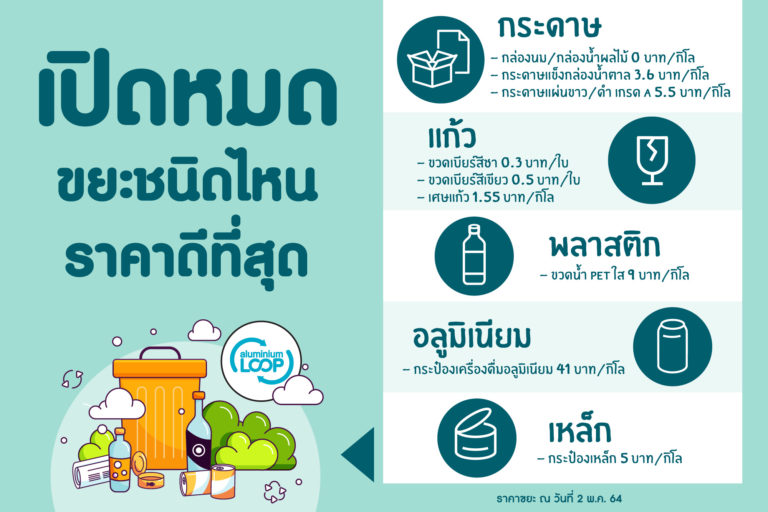
It can be seen that all types of trash mentioned have value, depending on whether you can sort it correctly or not. Even though some types of trash, such as milk cartons and juice boxes, don’t have a buyback value, you still play a crucial role in the recycling process.
For high-value recyclables like aluminium and other non-ferrous metals, many might be surprised to learn how close these items are to you. Not considering valuable metals like copper and brass that can fetch up to 200 baht, aluminium drink cans also have a significantly higher buyback price compared to other packaging types. The current buyback price for aluminium cans is around 41-50 baht/kg, higher than other drink packaging like beer bottles at 10-19 baht/box and plastic bottles at 0.2-10 baht/kg.
After sorting, different types of trash go into different recycling processes. All trash should be cleaned first because contaminated trash can’t be recycled and often ends up in landfills or incinerators. Let’s look at some examples of the recycling process:
Paper to be recycled shouldn’t be contaminated with oil. It’s then sorted by type, processed to remove ink, pulped into a slurry, and mixed with new paper pulp before being heated and made into recycled paper products such as notebooks, books, beverage packaging boxes, cardboard boxes, or even tissue paper. It’s heated at temperatures above 200 degrees Celsius to ensure cleanliness and safety.
Firstly, glass is sorted by color—clear, brown, and green—smashed into small pieces, cleaned with chemicals, and then melted down to be blown into new bottles, packaging, or decorative items. Glass in good condition can be reused after being properly cleaned.
Labels are removed, and the plastic is flattened to save space. It’s sorted by type and then goes through a recycling process depending on its subsequent use, such as being broken down by heat back into petroleum for fuel or reprocessed by melting into plastic pellets for use in products like film, food containers, or car parts. However, plastic can only be recycled 2-3 times due to certain limitations, such as plastics contaminated with dirt that can’t be cleaned and are not recyclable.
Aluminium is all around us, from window frames and car parts to laptops. Here, we’ll discuss the recycling of aluminium drink packaging, which involves crushing them into small pieces, melting them into large aluminium logs, and then rolling them into sheets to be turned back into clean, safe aluminium cans. And importantly, aluminium can be recycled endlessly.
Typically, steel scrap must be melted down before being formed into rods or sheets. However, steel food cans are often coated with tin to resist corrosion from food, which requires compacting, chemically separating the tin from the steel, and then melting them into separate tin and steel rods to be used in products like new cans, construction materials, or car parts.
The waste that seems useless to us can still be utilized in industries to meet ongoing consumer demands. Waste isn’t something distant from us; it can come back to us in unexpected ways.
Aluminium Loop wants to encourage everyone to see the value in sorting waste. Some might think that the waste collectors will sort it out later, but wouldn’t it be better if you could help make their job easier?
Everything starts with you!
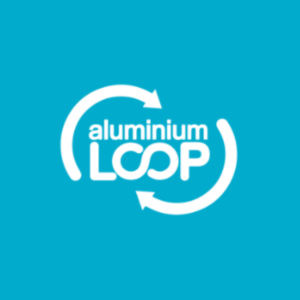

Aligning aluminium cans waste management with the circular economy principles by revitalizing aluminium cans through innovation.
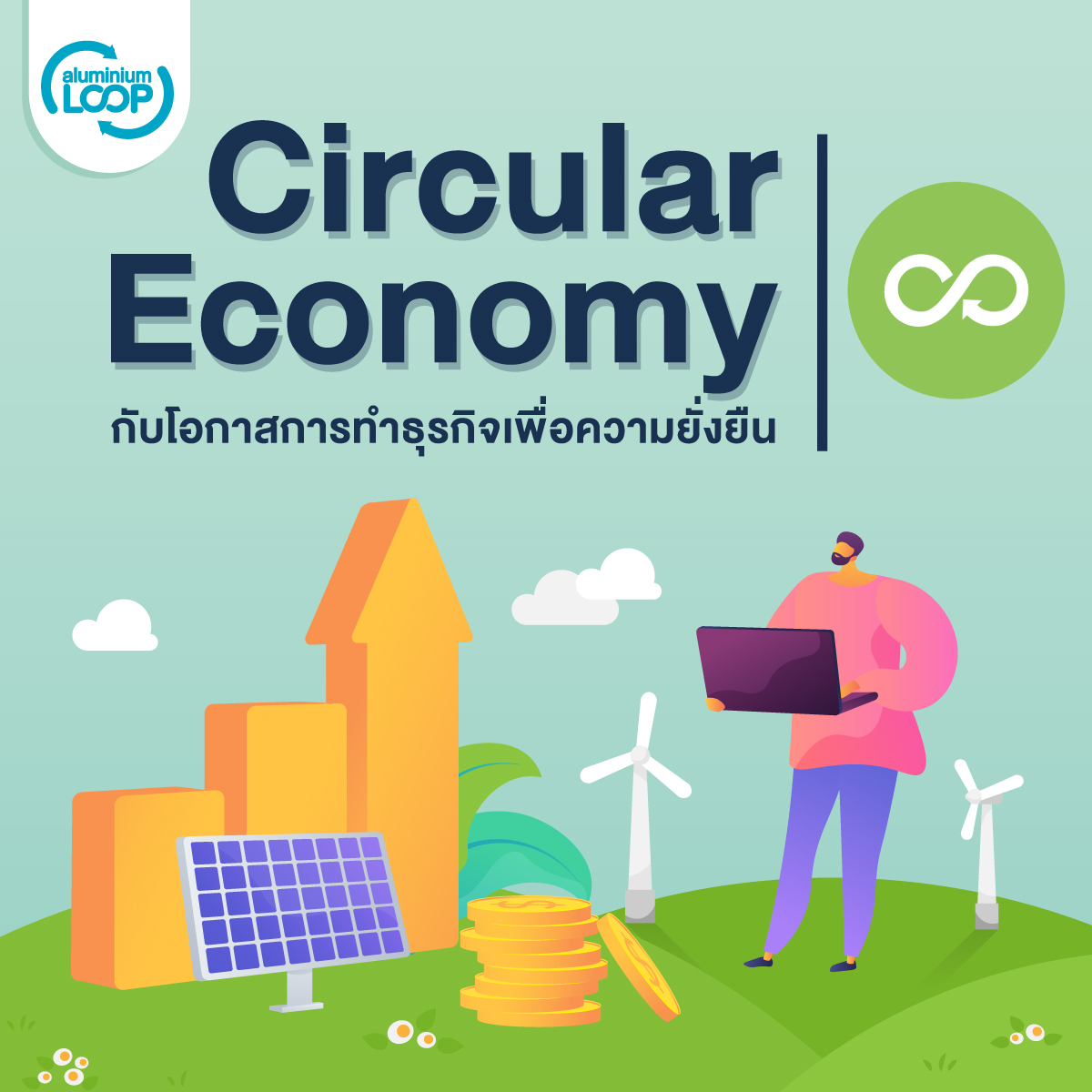
Natural resources are dwindling every day. How can a Circular Economy solve this problem when humans still need these resources to survive?
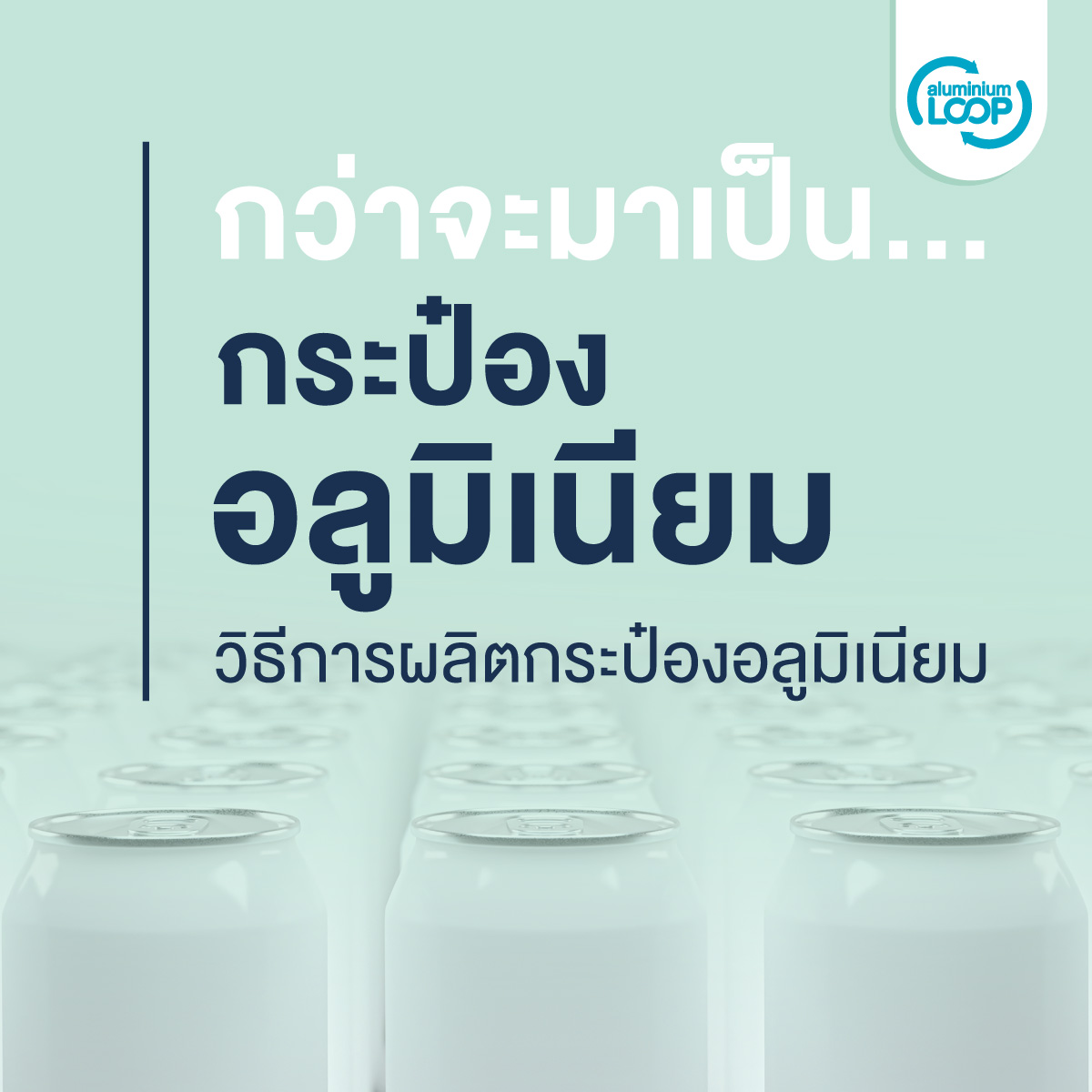
Before becoming the aluminium cans to hold drinks we’re familiar with. What’s the production process they go through? Let’s explore together.